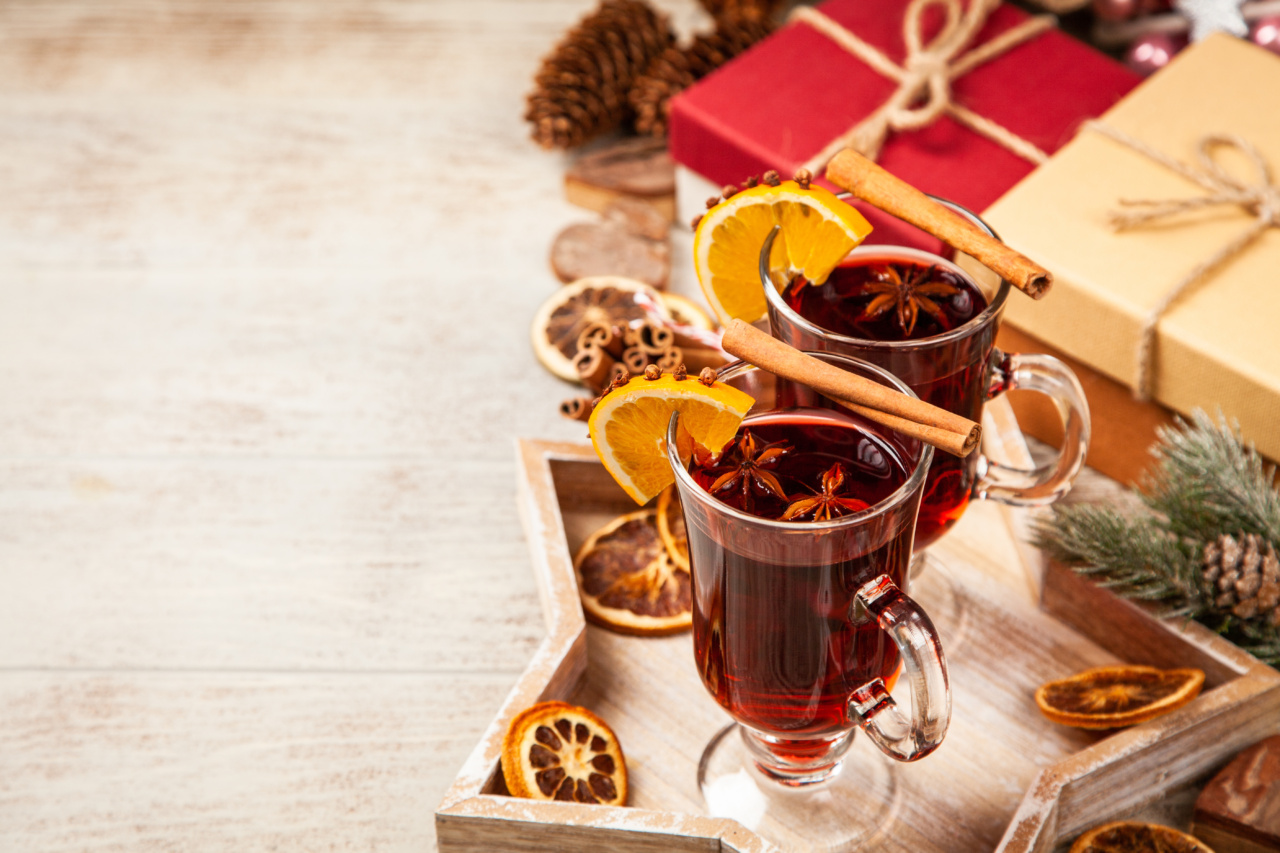The holiday season is a time for celebration, family gatherings, and indulging in delicious meals and treats. With the scent of spices filling the air, it is easy to get carried away with the festive flavors of Christmas.
However, it is important to be mindful of certain spices that can have negative effects on your health if consumed in excess. In this article, we will discuss some commonly used Christmas spices that can be harmful and explore their potential health risks.
Cinnamon: A Beloved but Tricky Spice
Cinnamon is a popular spice that is known for its warm and sweet flavor. It is widely used in Christmas recipes, from baked goods to hot drinks.
While cinnamon can certainly add a delightful taste to your holiday treats, consuming too much of it can have adverse effects on your health.
One of the main concerns with cinnamon is a compound called coumarin. Coumarin is found in significant quantities in Cassia cinnamon, which is the most commonly available type of cinnamon.
High levels of coumarin can be toxic to the liver and kidneys, and it is especially harmful to individuals with liver diseases.
Prolonged consumption of large amounts of cassia cinnamon may also lead to increased risk of developing cancer.
Although more research is needed to fully understand the extent of the risk, it is advisable to moderate your consumption of cinnamon, especially if you already have liver issues.
Nutmeg: An Exotic Spice with Hidden Dangers
Nutmeg is another spice commonly associated with Christmas, particularly in desserts and beverages. It has a warm, nutty flavor that adds depth to many recipes.
While sprinkling a little nutmeg on your eggnog may be harmless, excessive intake of this spice can have serious consequences.
The compound responsible for nutmeg’s effects is called myristicin. In small doses, myristicin acts as a mild stimulant and can induce feelings of euphoria.
However, consuming too much nutmeg can lead to symptoms such as hallucinations, nausea, increased heart rate, and even seizures.
It is worth noting that the amount of nutmeg typically used in recipes is unlikely to cause any harm.
However, the temptation to experiment with large doses of nutmeg as a recreational drug should be strongly discouraged, as it can have severe health consequences.
Star Anise: A Spiced Danger for Some
Star anise is a beautiful Christmas spice often used in mulled wine and gingerbread recipes. It has a distinct licorice-like flavor and fragrance that adds a unique twist to holiday dishes.
However, star anise can be potentially hazardous for certain individuals.
One of the compounds found in star anise is called shikimic acid. While shikimic acid itself is not harmful, it is used in the production of oseltamivir, a key ingredient in some flu medications.
This is a concern because consuming large amounts of star anise can lead to an overdose of shikimic acid, which may cause adverse effects on the nervous system.
Additionally, star anise can trigger allergic reactions in some individuals, especially those with existing allergies to related spices like fennel, anise, or licorice.
These allergic reactions can range from mild discomfort to more severe symptoms such as swelling, difficulty breathing, and anaphylaxis.
Clove: A Powerful Spice with Cautionary Notes
Cloves are a staple in many holiday dishes, providing a warm and aromatic flavor. They are often used in everything from mulled wine to traditional Christmas ham.
While cloves offer several health benefits, excessive consumption can have negative effects.
One of the primary concerns with cloves is their eugenol content. Eugenol is the compound responsible for cloves’ distinctive taste and smell. When consumed in large amounts, it can cause liver damage and may even interfere with blood clotting.
Cloves also contain a compound called methyleugenol, which has been classified as a possible human carcinogen by the International Agency for Research on Cancer.
Although the risk associated with methyleugenol in cloves is relatively low, it is still advisable to consume them in moderation, especially if you already have liver problems.
Ginger: A Warming Spice with Healing Properties
Ginger is a versatile spice that adds a pleasant, spicy kick to many Christmas recipes. It is known for its invigorating flavor and various health benefits.
While ginger is generally safe for consumption, it is important to be aware of potential side effects.
Excessive consumption of ginger can cause digestive issues such as heartburn, diarrhea, and stomach discomfort. It can also interact with certain medications, particularly blood thinners, and may increase the risk of bleeding.
Additionally, ginger has a warming effect on the body, which can be beneficial for circulation.
However, individuals with certain health conditions, such as bleeding disorders or cardiovascular diseases, should use ginger in moderation and consult with a healthcare professional to assess potential risks.
Allspice: A Mild Spice with Hidden Risks
Allspice is a common Christmas spice that resembles a combination of several other ingredients, such as cinnamon, nutmeg, and cloves. It adds a warm and complex flavor to dishes, making it a popular choice for holiday recipes.
While allspice is generally safe to consume, it is important to be mindful of potential allergic reactions.
Some individuals may be allergic to allspice and may experience symptoms such as itching, hives, or gastrointestinal distress after consuming it.
Allergies to allspice are relatively rare but can occur, particularly in individuals with known allergies to other spices or plants in the same family.
Protecting Your Health During the Festive Season
As tempting as it may be to enjoy the delightful flavors of Christmas spices, it is vital to consume them in moderation and be aware of any potential health risks. Here are some tips to ensure your safety during the festive season:.
- Use spices in moderation: While spices can add wonderful flavor to festive dishes, moderation is key. Stick to recommended amounts and avoid excessive use.
- Know your limits: If you have pre-existing health conditions, such as liver problems or allergies, consult with a healthcare professional before indulging in large quantities of certain spices.
- Read labels and ingredients: Be mindful of the spices used in store-bought Christmas treats and beverages. Check the labels for any known allergens or potential risks.
- Experiment responsibly: If you plan on trying out new recipes or unusual spice combinations, start with small amounts and pay attention to how your body reacts.
- Choose alternatives if needed: If you are concerned about the potential risks associated with specific spices, look for alternative recipes that use safer substitutes or reduce the overall quantity of spices.
By being mindful of the spices you consume and following these guidelines, you can enjoy the flavors of Christmas while ensuring your health and well-being during the festive season.






























